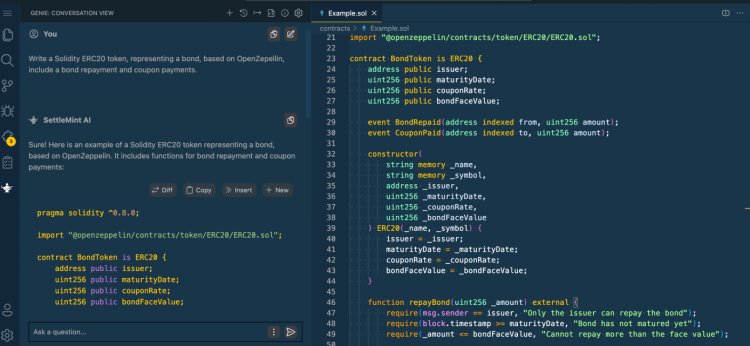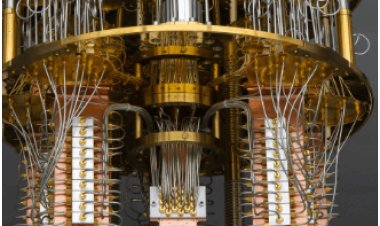SettleMint's AI Assistant Aims to Enhance Smart Contract Development for Web3 Developers
SettleMint Introduces AI Assistant to Enhance Smart Contract Development for Enterprises in the Web3 Era

The emergence of artificial intelligence's capability to generate software code has spurred numerous companies to unveil code-generating solutions. SettleMint, renowned for its low-code blockchain programming tool tailored for enterprises, has now integrated an AI assistant into its platform.
This AI assistant, unveiled approximately nine months subsequent to SettleMint's announcement of securing 16 million euros in its Series A funding round, holds the promise of aiding developers in the creation of smart contracts, seamless data integration, and improved quality assurance (QA) testing.
In the midst of a period marked by fluctuations in digital currency valuations, the Belgian company, established seven years ago, is witnessing consistent user growth. Enterprises increasingly acknowledge the potential of blockchain technology but often grapple with a shortage of technical expertise required to bring their innovative concepts to life.
A survey conducted by Stack Overflow, a prominent platform for programmer Q&A, revealed a mere 1% of respondents claiming substantial experience in Solidity. This programming language is crucial for crafting smart contracts, which are self-executing digital agreements constructed on blockchain networks like Ethereum.
According to Roderik van der Veer, co-founder and CTO of SettleMint, the intent behind the AI assistant isn't to replace human involvement. While the AI can assist in drafting smart contracts, its true value lies in elucidating the function of each line of code.
Van der Veer elaborated, "Comprehending a segment of code enables you to identify errors. Instead of staring at the screen and resorting to online searches, mentally processing copious internet information to deduce potential issues, the AI handles this task."
Although the AI assistant is adept at proposing alterations to mitigate vulnerabilities, it's important to note that the code won't be entirely devoid of bugs. Technical audits remain indispensable, particularly given the intricate nature of blockchain systems. However, leveraging SettleMint as the initial screening layer empowers auditors to dedicate more attention to debugging the "non-trivial" aspects of the code, as proposed by the founder.
SettleMint's AI assistant predominantly undergoes training using OpenAI's GPT-4 model. The assistant is consistently fed with current insights into the rapidly evolving realm of blockchain development, characterized by frequent technical enhancements.

 chandni
chandni 



